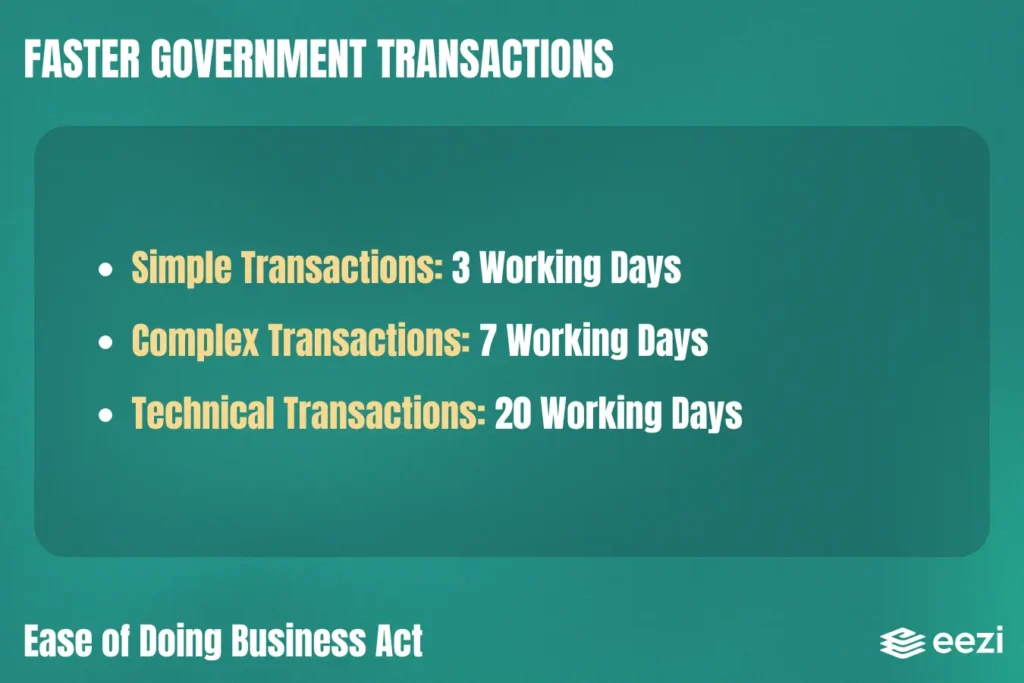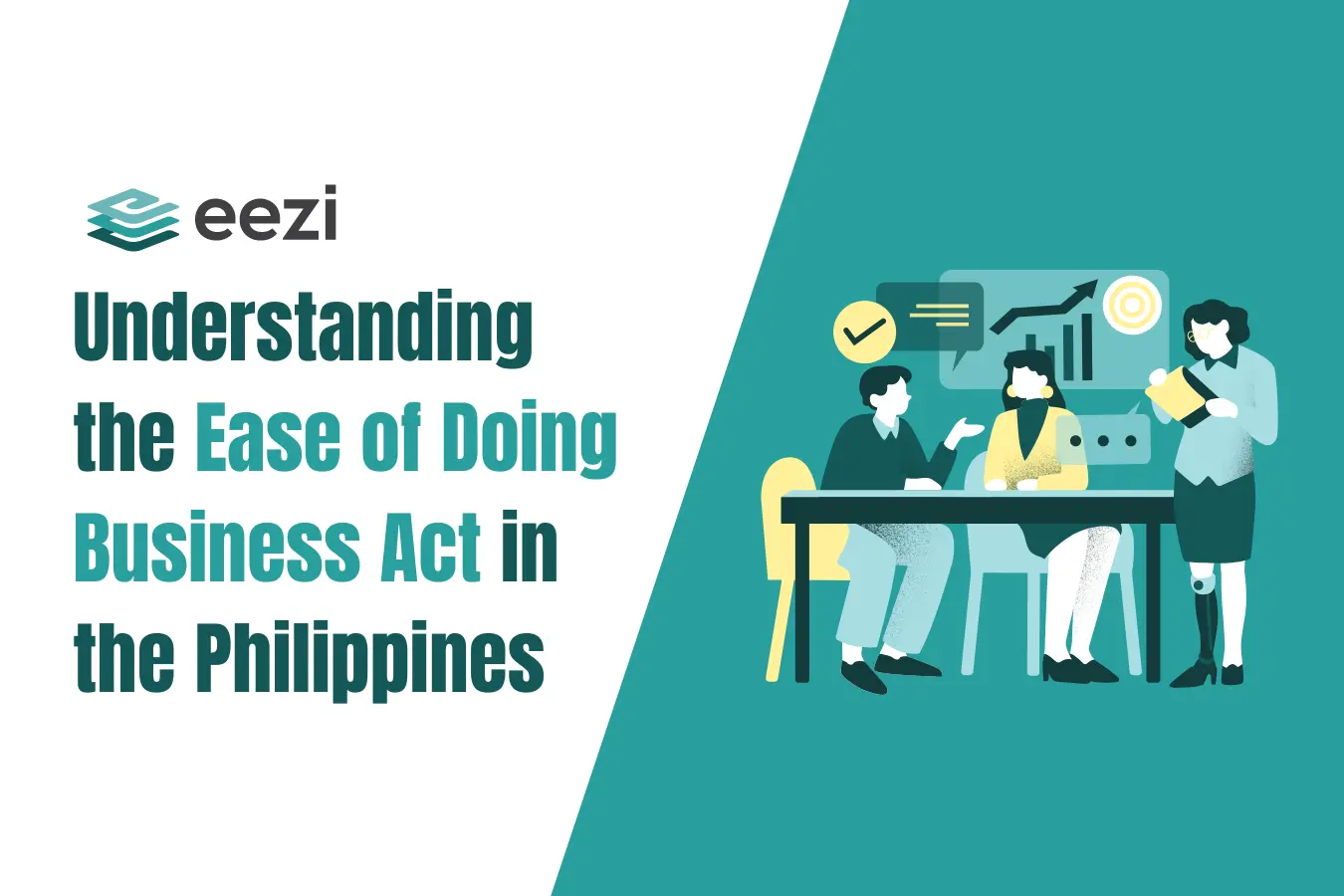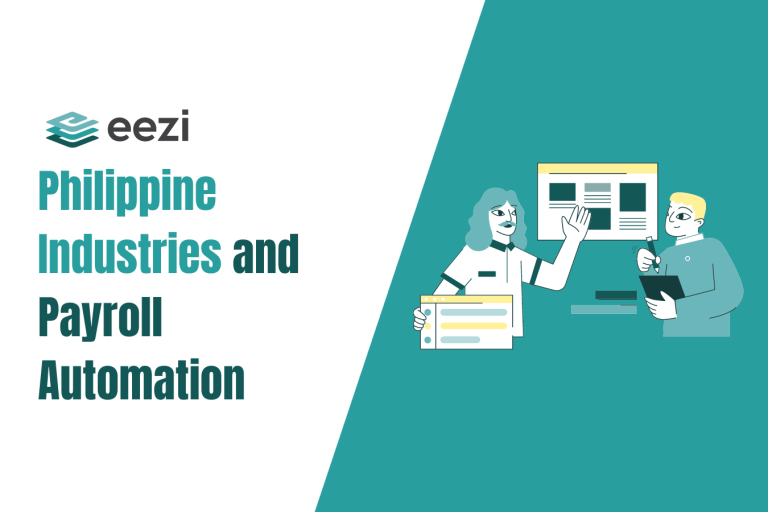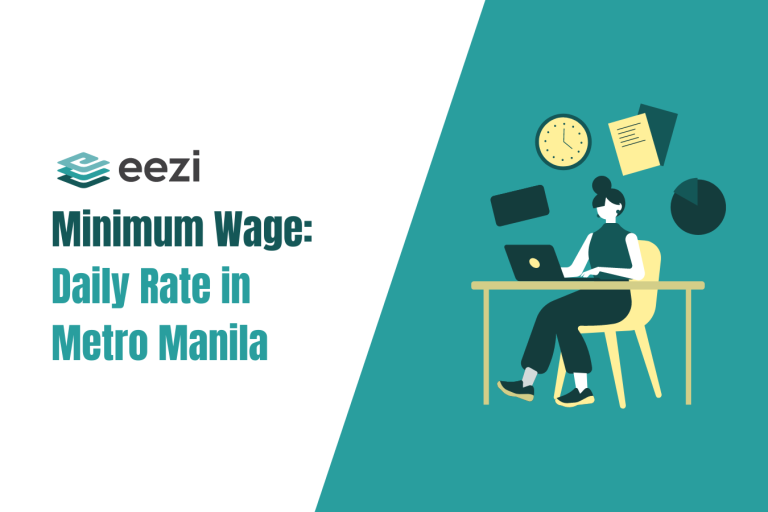What is the ease of doing business act in the Philippines?
Key Points
- The Ease of Doing Business Law speeds up the processing of government permits and licenses in the Philippines.
- Its main purpose is to streamline transactions with government agencies and encourage businesses to open in the country.
- Under this law, simple transactions must be completed within 3 working days, complex ones in 7 days, and permits with dangerous activities within 20 days.
- If the government agency fails to issue the permits within the prescribed days, it is automatically approved.

Applying for a business license can be very tedious, time-consuming, and redundant. It can also take several tries before your request gets approved.
However, this changes with the implementation of the Ease of Doing Business Law in the Philippines. With this new act, applications for business registration have become easier and more efficient.
What is the Ease of Doing Business Act?
The Ease of Doing Business Law mandated the speeding up of business and non-business transactions. This includes transactions such as the issuance of business permits and licenses.
The law took effect under the Republic Act 11032, enacted on May 28, 2018. Its primary aim is to entice business owners, entrepreneurs, and foreign investors to open and operate in the country.
Moreover, it is an amendment to the Anti-Red-Tape Act of 2007. This added provisions that hold government agencies and their officials accountable for potential graft and corruption related to efficient business registration processes.
Finally, the failure of any employee to comply with this law can result in criminal liability.

Important Clauses of the Ease of Doing Business Act
Faster government transactions when securing business permits
The local government departments and their officials must swiftly process the applications and requests for local business licenses.
- For simple transactions: Processing should be within three (3) working days.
- For complex transactions: Processing time should be within seven (7) working days.
- Applications that should be done within twenty (20) working days: Business permits involving the following
- Activities and scope that can pose a danger to public health, safety, morals, and policies
- Highly technical transactions
If the local government arm fails to process the business permit within the stipulated time frame, the application is granted automatic approval.

Simplified process for issuing local business licenses and permits
The licensing system can be very tedious, time-consuming, and inefficient. Hence, the Ease of Doing Business Law aims to help solve these problems.
The Republic Act 11032 makes the issuance of permits and licenses more straightforward, be it business permits, environmental and agricultural clearances, and other licenses.
New Processes with the Ease of Doing Business Law
- The use of a unified business application form when processing new applications for business permits and business renewals.
- The updated permit application process combines applicant information from other agencies. This helps the local government departments in handling tax, clearance, and permit requests. Some of the permits and clearances that require shared information are as follows:
- Local taxes and clearances
- Building clearance
- Sanitary permit
- Zoning clearance
- Other specific requirements of other government agencies and LGUs, including fire clearance issued by the Bureau of Fire Protection (BFP).
- The local government has the option to renew business permits in the first month of the year or on the business permit’s issuance anniversary.
Electronic Business One-Stop Shop (eBOSS) Implementation
The eBOSS is a single-stop facilitation service set up to streamline a city’s or municipality’s business permitting and licensing system. Moreover, the eBOSS receives and processes manual and electronic submissions of applications for permits, licenses, and other authorizations.
The government has mandated cities and municipalities to automate their business permitting and licensing systems. Alternatively, they can implement eBOSS within three (3) years from the effectivity of the Ease of Doing Business law.
Furthermore, the law states that local clearances shall be issued with the business permits to reduce requirements. Such documents include sanitary permits and environmental and agricultural clearances.
On the other hand, applicants must obtain barangay clearances and business-related permits at the office where the business is located. Lastly, clearances and licenses must follow Ease of Doing Business Law timelines, with revenues sent to barangays.
Zero Contact Policy
The Ease of Doing Business Law requires a Zero Contact Policy during all government transactions between officers and applicants. Additionally, there can only be a virtual or face-to-face meeting during the preliminary assessment or when strictly necessary. This policy aims to reduce potential graft, corruption, extortion, and bribery in government-related transactions.
The Citizen’s Charter
The Citizen’s Charter is a means for government agencies to convey their service standards when delivering their services to their clients or citizens.
This means of information dissemination can be in the form of billboards posted at the office’s main entrance, conspicuous and public locations, their respective websites, or printed or published materials, either in English, Filipino, or their local dialects.
Details of the service standards should include:
- An extensive, unified checklist of requirements for all types of applications and requests handled by said office or department
- Detailed steps on how to go about a particular service
- The time frame or number of days it takes to process the requested service
- Pertinent documents or additional requirements that the applicant or requesting party needs to provide during the application
- Corresponding fees, if applicable or necessary
- The procedure for filing complaints
Streamlined Online Business Registration
Republic Act 11032 requires online business registration via the Central Business Portal established by the Department of Information and Communications Technology (DICT). This portal handles various business-related transactions, ensuring data collection for permits, licenses, clearances, and certifications.
Additionally, the Act mandates the creation of the Philippine Business Databank so that government agencies and LGUs have easy access to business entity information.
The Central Business Portal (CBP)
The CBP is a central system that manages all business-related transactions like primary and secondary licenses. In addition, it also stores business clearances, certifications, permits, and other LGU authorizations.
The Philippine Business Data Bank (PBD)
Along with the Ease of Doing Business Act comes the creation of a centralized Philippine Business Data Bank. This data bank holds the information of registered business entities for validation purposes. Moreover, each LGU and NGA shall update this data bank periodically to keep it up-to-date.
eezi HR Guide
Stay up to date with health and safety regulations.
Anti-Red Tape Authority
RA 11032 also mandates the creation of the Anti-Red Tape Authority (ARTA) to oversee, implement, and neutralize red tape. Moreover, ARTA is also designed to implement reforms and initiatives to combat excessive bureaucracy and to ensure that the various government units and agencies involved will adhere to them.
To facilitate this, the law recommends the creation of a unified application and renewal forms that contain all the information for the various local government departments.
Accountability and Liability of Government Officials and Employees
Government agencies, their officials, and employees must follow the Ease of Doing Business law. Moreover, government officials and employees who fail to adhere to the statutes of the law will be punished accordingly and will incur corresponding penalties.
Related:
Implementation Process of the Ease of Doing Business Act
The Ease of Doing Business Act (Republic Act 11032) was enacted to streamline and simplify the process of obtaining permits and licenses for businesses in the Philippines. Its primary goal is to create a more business-friendly environment to attract both local and foreign investors. The implementation of this law involves several steps and mechanisms designed to improve efficiency and reduce bureaucratic hurdles.
Registration and Documentation
Complete the unified business application form available through eBOSS or CBP. If eBOSS has not yet been fully implemented, submit all required documents electronically through the CBP or manually to the local government unit (LGU).
Processing and Follow-Up
Use the online portals to track the status of applications. If processing times exceed the prescribed limits, follow up with relevant agencies.
Be aware of the automatic approval provision and ensure you have documentation to support any automatic approvals if deadlines are missed.
Compliance with Local Requirements
Obtain barangay clearances and other specific local permits from the office where the business is located. Ensure compliance with local taxes, building, sanitary, zoning, and fire safety requirements.
Use of Technology
Invest in software and systems that integrate with government portals to streamline internal processes and ensure compliance. Maintain accurate records and data to facilitate easy and quick submissions and updates as required.
Ensure that your business is always on par!
eezi understands your need to keep track of employee work hours to sustain productivity and ensure continuous operation and progress! Use eezi to make running your business easy!



